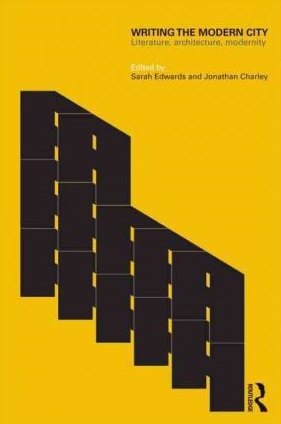
Writing the Modern City : Literature, Architecture, Modernity
[Book Description]
Literary texts and buildings have always represented space, narrated cultural and political values, and functioned as sites of personal and collective identity. In the twentieth century, new forms of narrative have represented cultural modernity, political idealism and architectural innovation. Writing the Modern City explores the diverse and fascinating relationships between literature, architecture and modernity and considers how they have shaped the world today. This collection of thirteen original essays examines the ways in which literature and architecture have shaped a range of recognisably 'modern' identities. It focuses on the cultural connections between prose narratives - the novel, short stories, autobiography, crime and science fiction - and a range of urban environments, from the city apartment and river to the colonial house and the utopian city.It explores how the themes of memory, nation and identity have been represented in both literary and architectural works in the aftermath of early twentieth-century conflict; how the cultural movements of modernism and postmodernism have affected notions of canonicity and genre in the creation of books and buildings; and how and why literary and architectural narratives are influenced by each other's formal properties and styles. The book breaks new ground in its exclusive focus on modern narrative and urban space. The essays examine texts and spaces that have both unsettled traditional definitions of literature and architecture and reflected and shaped modern identities: sexual, domestic, professional and national. It is essential reading for students and researchers of literature, cultural studies, cultural geography, art history and architectural history.
[Table of Contents]
List of figures ix
Notes on contributors xi
Preface xiii
Acknowledgements xvi
1 Time, space and narrative: reflections on 1 (18)
architecture, literature and modernity
Jonathan Charley
PART I Memory, nation, identity 19 (76)
2 Remembering and forgetting: private and 21 (11)
public lives in the imagined nation
Sarah Edwards
3 Poets, tramps and a town planner: a 32 (24)
survey of Raymond Unwin's on-site persona
Brian Ward
4 Unhomely desire: dismantling the walls of 56 (22)
difference in Gora's Kolkata
Mark Mukherjee Campbell
5 `The past forsworn': colonialism and 78 (17)
counterhistory in the work of Doris Lessing
Victoria Rosner
PART II Movement, culture, genre 95 (70)
6 Drugs, crime and other worlds 97 (11)
Jonathan Charley
7 Architectural crimes and architectural 108 (19)
solutions
Peter Clandfield
8 Philip K. Dick's disturbanism: towards 127 (19)
psychospatial readings of science fiction
David T. Fortin
9 Alexander Trocchi: Glasgow through the 146 (19)
eye of a needle
Gary A. Boyd
PART III Narrative, form, space 165 (62)
10 Anonymous encounters: the structuring of 167 (11)
space in postmodern narratives of the city
Sarah Edwards
11 The novel architecture of Georges Perec 178 (13)
Stefanie Elisabeth Sobelle
12 Sex happens: a phenomenological reading 191 (22)
of the casual encounter
Renee Tobe
13 `There are different ways of making the 213 (14)
streets tell': narrative, urban space and
orientation
Inga Bryden
Index 227

 新书报道
新书报道